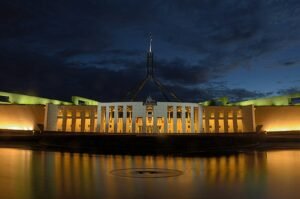The Airbnb Paradox: Rise of Short-Term Rentals amidst housing crisis
As thousands of Australians face skyrocketing rents and fierce competition for a place to live, many of our homes are playing host—not to residents, but to tourists. What does this mean for the average renter?
The Great Displacement: Why Tenants Are Losing Out
In a country where housing is becoming increasingly unaffordable, a concerning trend is quietly accelerating the crisis—our long-term homes are being turned into short-term getaways. Platforms like Airbnb have transformed once-residential suburbs into transient hubs, pricing out the very workers, families, and communities that hold them together.
Data from Inside Airbnb paints a stark picture: in some hotspots, there are 15 short-term rental listings for every one long-term rental. And while renters in cities like Sydney, Melbourne, and Hobart queue for inspections or settle for substandard conditions, fully furnished holiday homes lie vacant on weekdays—waiting for weekend guests.
Renters Left Behind by a Market Tilted Toward Tourists
Soaring Rents and Shrinking Options
The national rental vacancy rate has plunged below 1% in many areas. Meanwhile, short-term listings are flourishing. Property owners, incentivized by higher nightly rates and flexible bookings, are shifting away from secure, long-term tenancies. This exodus is leaving renters with few choices—and higher costs.
- In Byron Bay, long-term renters compete for mere dozens of listings, while hundreds of Airbnb properties sit just out of reach.
- Inner-city suburbs of Sydney show 5–10% of all housing stock dedicated to short-term lets.
Displacement and Instability
This shift isn’t just an inconvenience. It’s destabilizing. Essential workers—nurses, teachers, baristas—are being forced to relocate further away from their workplaces. In some tourist towns, businesses can’t find staff because those who’d work there simply can’t afford to live nearby.
The Power of Platforms, the Weakness of Policy
Regulations That Fail Renters
Australia’s approach to short-term rentals is a patchwork of under-enforced policies, often favouring property investors over residents. While NSW introduced a 180-day cap, loopholes and lax monitoring render it ineffective. Other states, like Victoria and Queensland, have focused more on managing party houses than addressing housing scarcity.
Contrast this with Barcelona, where short-term rental licenses have been frozen, or New York City, where strict host registration and limits have been imposed. Australia, by comparison, lags behind.
When Investment Goals Clash With Human Needs
Australia’s tax system and housing culture—heavily skewed toward property investment—fuel this imbalance:
- Tax perks like negative gearing and depreciation deductions make short-term rentals financially irresistible.
- Lack of housing alternatives pushes investors into the property market, often prioritizing yield over community need.
But we must ask: At what cost?
When housing is treated primarily as an income stream, tenants become collateral damage. They are priced out, pushed out, and in some cases, left homeless—all while vacant properties are cleaned for the next round of tourists.
Reimagining Housing: Policy Solutions That Prioritize People
It doesn’t have to be this way. Here are several policy directions that could help recalibrate the housing market in favour of renters:
- Day caps for short-term rentals (with real enforcement)
- Mandatory registration of all Airbnb-style listings
- Owner-occupier rules to prevent whole-home investor listings
- Higher council rates or taxes for short-term rental properties
- Incentives for long-term leasing, including tax offsets and grants
- Investment in social and affordable housing, especially in high-demand regions
Platforms like Airbnb must also be held accountable—through automated enforcement tools, data sharing, and participation in housing affordability initiatives.
Conclusion: Housing First, Holidays Second
Tourism matters. But housing is a fundamental human right—not a seasonal commodity. The unchecked growth of short-term rentals in the middle of a rental affordability crisis is not just a market trend; it’s a moral failure.
Australia must decide: do we want thriving communities, or thriving profit margins for a few? Do we want homes for families, or hotels in disguise?
Tenants across the country are already living with the consequences of our inaction. It’s time policymakers and platforms alike took responsibility and rebalanced the scales. Because a country where teachers, nurses, and students can’t afford to live is a country on shaky foundations.
Disclaimer
This article represents the opinion of the author based on publicly available data and current rental market trends. It does not constitute financial or legal advice. Readers should consult with a qualified professional for tailored guidance.
Further Reading & References
- Inside Airbnb: www.insideairbnb.com
- Domain Rental Reports: www.domain.com.au/research
- Australian Housing and Urban Research Institute (AHURI): www.ahuri.edu.au
- NSW Government – Short-Term Rental Accommodation Reforms: www.planning.nsw.gov.au
- City of Barcelona Housing Policy: habitatge.barcelona

